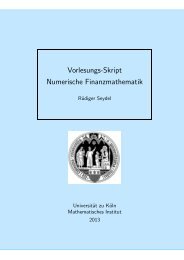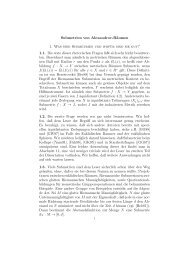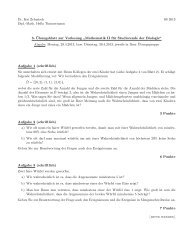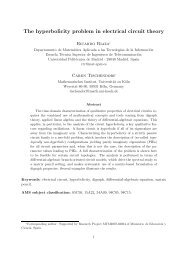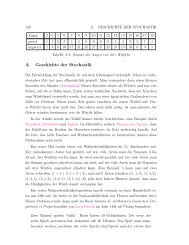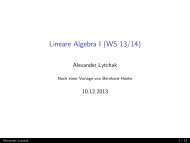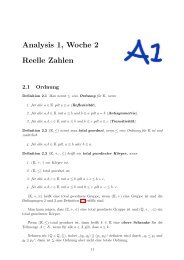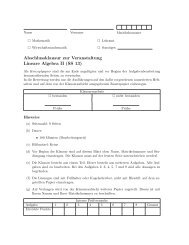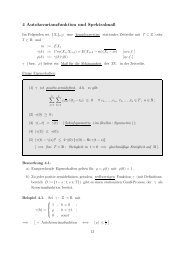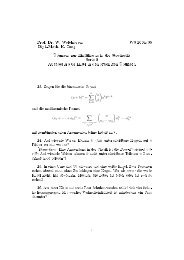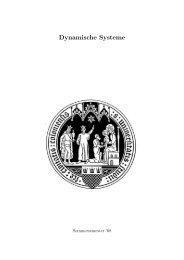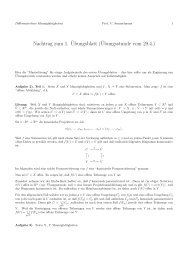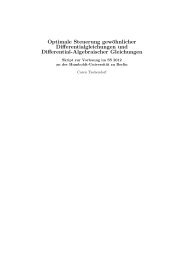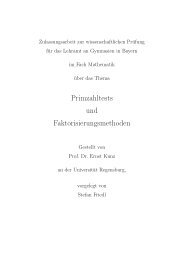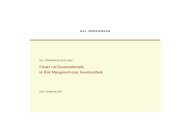Inhaltsverzeichnis - Mathematisches Institut der Universität zu Köln
Inhaltsverzeichnis - Mathematisches Institut der Universität zu Köln
Inhaltsverzeichnis - Mathematisches Institut der Universität zu Köln
You also want an ePaper? Increase the reach of your titles
YUMPU automatically turns print PDFs into web optimized ePapers that Google loves.
DMV Tagung 2011 - <strong>Köln</strong>, 19. - 22. September<br />
Jürgen Frikel<br />
<strong>Institut</strong> für Biomathematik und Biometrie, Helmholtz Zentrum München<br />
A new framework for tomographic reconstruction at a limited angular range<br />
We investigate the reconstruction problem for limited angle tomography. Such problems arise naturally<br />
in applications like digital breast tomosynthesis, dental tomography, etc. Since the acquired tomographic<br />
data is highly incomplete, the reconstruction problem is severely ill-posed and the traditional reconstruction<br />
methods, as filtered backprojection (FBP), do not perform well in such situations. Our approach<br />
is based on the observation that for a given acquisition geometry only a few (visible) structures of the<br />
unknown object can be reconstructed using a limited angle data set. By formulating the problem in the<br />
curvelet domain, we can characterize those curvelet coefficients, which correspond to visible structures<br />
in the image domain. The integration of this a-priori information into the reconstruction problem leads to a<br />
consi<strong>der</strong>able dimensionality reduction in the transform domain and, thus, accelerates the corresponding<br />
reconstruction algorithms.<br />
Jan Hamaekers<br />
Fraunhofer SCAI, Sankt Augustin<br />
HCFFT: A fast Fourier transformation software library for general hyperbolic cross/sparse grid<br />
spaces<br />
In this talk, we will present our software library HCFFT for fast Fourier transformations on general sparse<br />
grid approximation spaces. The curse of dimension limits the application of standard full grid spaces to<br />
low dimensional approximation problems and thus limits also the application of the conventional multidimensional<br />
fast Fourier transformation method. For functions which fulfill certain additional regularity<br />
assumptions, sparse grid spaces allows us to circumvent the curse of dimension at least to some extend.<br />
Our library HCFFT enables us to perform a fast Fourier transformation on these spaces. In particular, this<br />
includes optimized sparse grid approximation spaces, e.g. energy-norm sparse grid like spaces, and also<br />
dimension-adaptive sparse grid approximation spaces. We will discuss costs, accuracy, convergence<br />
rates, and some implementational details and applications.<br />
113



